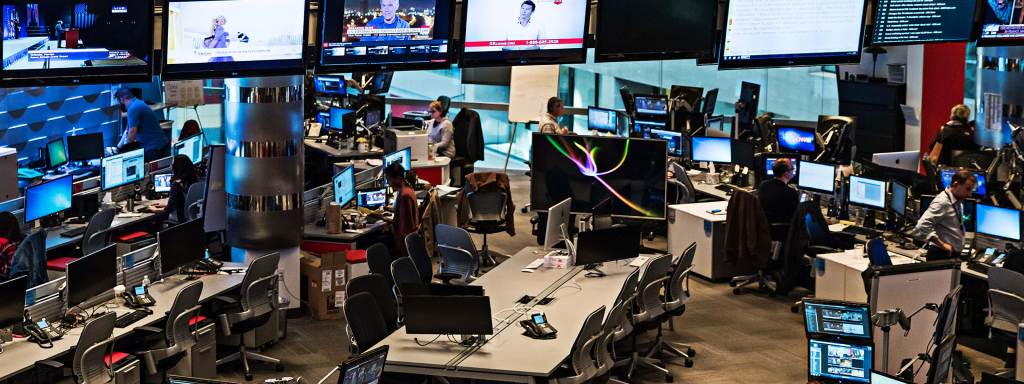
How can we build a more equitable media?
What do we want the media to look like in 50 years? How will it serve all communities in the United States and around the world? How can the media connect the dots on race, class, disability, and gender to create a coherent, truly representative shared narrative?
And what role can funders play to help build a more equitable media for the future?
As part of our Creativity and Free Expression program, we work toward building a more just and equal media and ensuring everyone in America can access accurate and relevant high-quality journalism.
In 2020, the twin pandemics of COVID-19 and systemic racism have upended life—and created a moment of reckoning within newsrooms and across the industry. They’ve called into question what it means to create truly inclusive newsrooms that can both cover the news of the day and discover the stories meaningful to the communities they serve.
Equity-focused news organizations have been quick to adapt, with examples of fresh thinking that combine both innovation and inclusion. However, the challenges facing the media today—from struggling business models to a lack of diversity in newsrooms—require reinvention across the industry and the funding to make that change possible.
Reconstructing American News, an analysis conducted on behalf of the Ford Foundation by Dot Connector Studio, is a first step towards outlining what those who fund journalism and helm newsrooms can do to create a more inclusive and sustainable media industry.
The analysis ties together two years of research and recent interviews with individuals, from entrepreneurs to leaders of large nonprofit newsrooms, to understand how these innovators are driving change and surviving the impacts of the pandemic. It investigates overlapping topics of equity in news, changing journalism business models in a period of rapid disruption, and responsive philanthropic strategies to address the many intersecting problems that currently exist in the industry.
Most importantly, our research shows that news outlets and entrepreneurs cannot innovate alone. To drive systemic and sustainable change in the media it is incumbent on funders and investors to find new approaches, adopt equity strategies, and explore creative new interventions to support innovation and equity beyond discrete projects and short-term initiatives. We need to resource new people, new processes and new power relations to orient ourselves towards an equitable future.
These are challenging times and require the work of many who share a commitment to a journalism that is fair, accurate and representative of America today. We welcome additional insights and fresh thinking about the road ahead, and we encourage you to respond in the comments below or take part in the conversation on social media using #RepresentMEdia.
